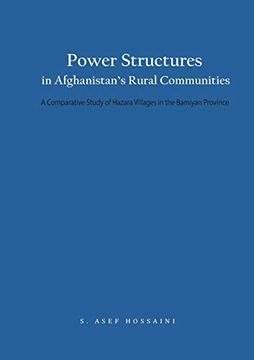Power Structures in Afghanistan's Rural Communities: A Comparative Study of Hazara Villages in the Bamiyan Province
Synopsis "Power Structures in Afghanistan's Rural Communities: A Comparative Study of Hazara Villages in the Bamiyan Province"
Afghanistan, a country with 55 different ethnic groups and a huge diversity of 45 languages and dialects, has been struggling to establish statehood on the basis of Hobbes' conception of political power since the 18th century. In accordance with this understanding, the capital, Kabul, has been determined as the locus of power where different forms of government have been practiced to ensure a unified nation in the mountainous country.The first attempt was during the reign of Amir Abdul Rahman Khan. Abdul Rahman suppressed all minor groups in order to found a modern homogenized sovereign state, and his attempt was accompanied by wars and massacres in the late 19th century. Afterwards, the country witnessed different political forms, ranging from the Monarchy to the Communist to the Taliban regime in the 20th century. The Taliban regime, a manifestation of pure rural power, was similarly concentrated on forming a central power structure by force. Through such repressive approaches, the dynamics of decentralized power in remote areas were remarkably neglected. The civil war in the 1990s can be principally understood as an attempt of the peripheral power to engage in the central power, or as a clash between the rural and urban communities of Afghanistan. After the collapse of the Communist government, Mujahidin groups rushed to the capital to capture and share power in a panicked attempt that led to a bloody civil war from 1992 to 1996. All Mujahidin groups, which were characterized by ethnic, lingual and religious factors, originated in rural communities. The Taliban group that governed almost 90 percent of the country from 1996 to 2001 eventually defeated the armed Mujahidin parties and pushed them out of Kabul and, was similarly coming from rural dwellings. Power as the sovereignty of state, however, has been always the desired structure of political authority in the country; a classical perception that has principally ignored and pushed aside non-governing ethnic, lingual and religious groups.Nonetheless, it appears that since the emergence of the new political approach in Afghanistan in 2001, the country has experienced another fashion of the central power in the capital. In this tendency, the political power has been apparently founded on the basis of democratic values, but its dynamism and elements are rooted to rural, tribal norms. But, however, despite the effectiveness of rural socio-political factors on the central power, the nature of power in the locales has continuously remained an unanswered question.This study challenges the dominant assumption that power in Afghan rural communities is commonly structured on the basis of tradition and practiced by elder male members. Such a perception has effectively manipulated the democratic approach of the newborn politics in Afghanistan. This understanding, meanwhile, blocked achievement of a profound detailed perception of power in remote areas of the country. In accordance with this viewpoint, political power has been more and more centralized and the peripheral characteristics have been neglected in a new manner. Power relations in the villages have been viewed solely as a matter of those power brokers who possess power from their regions, not simply as a matter of the state. This implies that the assumption helps the state to underestimate the peripheries and to continue its Hobbesian tradition of power despite failures to provide political goods.

